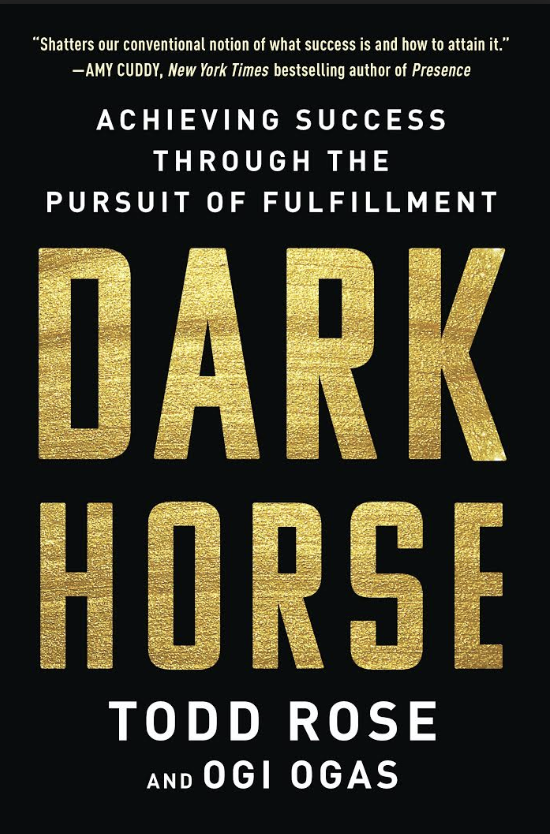From an early age, Jenny Dorsey knew exactly where she wanted to go: the very top of the ladder. Her parents drilled into her the idea that success consisted of climbing higher and faster than anyone else. “I had Tiger parents,” Jenny says, “and for them life was about perfect grades and outcompeting all the other kids to get a high-status job. Since I loved competing, I never really questioned any of this.”
To say that Jenny excelled in school would be a gross understatement. She left high school at age fifteen and then finished the finance program at the University of Washington at the age of nineteen. “I did so well in my classes that I destroyed the curve, so the teachers simply took me off the curve so the other students could pass. I was usually the smartest person in the room. My ego was completely unchecked.” Within months after she graduated, she was hired by Accenture as a management consultant. It was a job with a nice salary, decent benefits, and the opportunity to travel—an impressive career start by most standards, especially for a teenager. But Jenny was so obsessed with muscling her way to the top that she was already plotting how she could land one of the premier roles at the firm.
“I wanted to be a consultant for the luxury brands in the fashion industry,” Jenny says. “That was the brass ring. The ultimate status.” Unfortunately for Jenny, the company put her on the account for a discount department store instead, which was perceived as one of the dullest jobs at Accenture, with the least opportunity for advancement. “At first, I was like, Okay, at least I’ ll get to be in New York and I can make a move from there. But then they told me I had to work in Arkansas, and I was like, Uh, no way. I decided I would do whatever it takes to move up.”
She proceeded to maneuver her way up the ladder by cajoling her superiors, twisting arms and throwing elbows, not hesitating to step over her colleagues, until she finally secured a position consulting for Theory, a Manhattan-based high-end global fashion retailer. At the age of twenty-one, she had already reached her destination.
Jenny’s career trajectory is the perfect embodiment of the maxim “It’s not personal, it’s just business.” If you feel a sense of disapproval, wasn’t she simply doing exactly what the Standardization
Covenant demands? Wasn’t she simply ascending the ladder by being the same as everyone else, only much better? Wasn’t Jenny exactly the kind of success story the system was designed to cultivate?
Jenny certainly thought so. She celebrated her arrival by proudly updating her social media accounts to showcase her glamorous life to the entire world. “I had everything I thought I wanted,” Jenny says before drawing a long sigh. “And I hated my life.”
Even though she had reached the destination she had longed for throughout her short life, she was anything but fulfilled. “I was obsessed with my Facebook and LinkedIn accounts. I updated them constantly. But in reality, I didn’t have any friends. I thought they would slow me down, that in the corporate world it was kill or be killed,” Jenny explains. She developed an unhealthy relationship with food. It got so bad that she would binge in the middle of the night and then go days without eating. “I was completely out of control, I wasn’t sleeping, I wasn’t even doing my work.”
She finally reached her turning point.
“I looked in the mirror and realized—I have no idea who I am.”
She had been on the fast track for standardized success for so long that she had never stopped to think about what she actually wanted. “It suddenly became clear that I needed to start over. I was still living for my parents, for their expectations, for their idea of what it meant to be successful. I needed to find some way to figure out who I was, what I really wanted to do with the rest of my life.”
So she quit her job and embarked on a lengthy period of soul-searching. She worked as a barista at a café. She peddled blended juice. She worked in the kitchen at several restaurants. Jenny’s parents were angry and baffled by the abandonment of her career, and her relationship with them collapsed. She was unhappy about that, but she also understood what was at stake. After all, living her life according to someone else’s notion of success is what got her here in the first place.
Over time, she began to form healthier relationships. She started making real friends. Then she married a man who liked her for herself, for the Jenny who was discovering her own way. He supported her choices without putting any expectations on her about what success looked like. She finally restored a healthy balance to her eating. She discovered that she thoroughly enjoyed cooking and began to dabble in cooking classes, then enrolled in the Institute of Culinary Education. To test drive her new skills, Jenny and her husband decided that they would throw a five-course dinner party for friends.
Jenny cooked the food, and her husband mixed the drinks. “The food was a mess and the drinks were worse, but the dinner was kind of a revelation for me. For the first time, it was, something that was completely my own. I picked the menu, I cooked it, I organized the event, I was creative, I could just be myself and help my guests have a good time.”
Jenny had so much fun that she and her husband made it a weekly event. More people came each time. “Then one day a stranger showed up who we didn’t even know. We realized, wow, people are legitimately enjoying what we’re doing, and we’re having such a good time, maybe we should see if we can take it to the next level.”
The next level required Jenny to make her first bold move based on her true micro-motives. She and her husband rented a huge space in New York City and sold one hundred tickets for their dinner event. “We spent a great deal of money, expecting to make it all back, but ended up losing half! That hurt, but I didn’t care. It was amazing.”
Jenny and her husband continued refining their “pop-up supper club” in New York, naming it “I Forgot It’s Wednesday” since they always held it on Wednesday. “I was so proud of it. I never cared about anything the way I cared about the supper club, because it was something that was finally my own thing. For instance, one of our courses was named ‘You Make Asian Food Right?’ and the dish was a very non-Asian dish with lots of Asian influences, an ode to the fact that as an Asian American woman I am not a unidimensional thing. Another dish was named ‘Fancy ’Cause It’s French’—a mooncake with very traditional mooncake flavors (red bean, salted duck egg), but the ingredients were reimagined using the French technique for a small entremets so it presents as a patisserie item, mocking the fact that we assign status without true consideration for quality.”
Jenny’s bold move paid off. She and her husband moved to San Francisco and continued I Forgot It’s Wednesday there. Within a year, they were named the number one underground supper club in San Francisco. Eventually they moved back to New York and were named the top secret dining club in the city by Guest of a Guest and one of the best tasting menus in the city by CBS New York. Their pop-up dinner series, now renamed “Wednesdays,” is still going strong today.
After living the first two-thirds of her life chasing someone else’s idea of success, Jenny has finally arrived at a place where her individuality matters. “We built our brand around authenticity, because everything about it is true to who we are.”

Excerpted from Dark Horse: Achieving Success Through the Pursuit of Fulfillment
Copyright © 2018 by Todd Rose and Ogi Ogas. Published by HarperOne.



